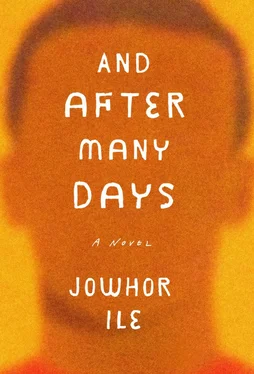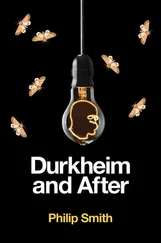This was the album she didn’t like the children playing with. It had all the important pictures taken from when the children were only babies, in napkins and napkin pants. None of them had any tops on in their baby pictures, just talcum powder rubbed all over their necks and chests. Bibi was crying in hers. Paul was leaping up to catch something, and Ajie had a steady glare, his dark eyes holding the same expression then that they always would: accusation, gripe, and the dancing impulse to pick up something and throw it.
There was the picture to mark Paul’s one-year anniversary, and another where Paul was receiving a prize for being the best student in his year. And there was Paul in his school uniform when he first entered secondary school. There was a studio photo Paul had taken only a few weeks before. By himself, he had gone to Majestic Photos, a new studio that had opened on Sangana Street and was quite the talk of town. He was wearing dark green denim trousers and a big T-shirt. He had a fresh haircut. The photographer, it seemed, had encouraged him to powder his face before the shot. He was resting his hand on a high stool, and his foot was stepping on the base as he stared into the camera. That was the picture Ma pulled out of the album and handed over to Bendic. Bendic murmured some words and left the house. Ajie heard the car start and Ismaila disturbing the gate.
That evening, the announcements came up for the first time; they had told Bendic when the announcements would be aired. Ma looked at the television and then stood up and walked into the kitchen once Paul’s picture came on the TV screen. The background noise in the studio and how Paul’s picture shifted slightly on the screen every now and then made it feel exactly like the obituary announcements that came on Friday evenings.
The announcer began to say that a boy aged seventeen had gone missing. Then Ajie heard a sound from the kitchen like an animal being strangled. Bendic went into the kitchen to meet Ma, and Ajie could see Bibi staring at the TV, but he didn’t want to look at it anymore. Above the TV was a calendar that, for the month of September, showed some Atilogwu dancers enraptured in the ecstasy of the music, grinning wildly in their raffia skirts.
Bendic stayed with Ma in the kitchen for a while. When they came back to the parlor, Ma’s eyes were red and puffy.
—
On the day Bibi was actually to return to school, Ma woke her up early. Ajie was still in his room while Ma went through Bibi’s tin box to see if she had all she needed. He didn’t hear them talk. Ma had said she was going to drop Bibi at school. When Ajie came out to the parlor, Bendic was standing by the window, looking into Ma’s garden, and did not realize he wasn’t alone until Ajie greeted and startled him. He turned around, and Ajie was not sure what it was he saw on Bendic’s face — fright, surprise, wonder, or anguish?
“Oh, it’s you?” Bendic said, trying to regain his composure. “I hope you don’t mind, we will take you back to school tomorrow. Is that okay? I rang Mr. Onabanjo this morning. I left a message for him, explaining that there were some problems, but you’ll be in school tomorrow. Okay?” He did not say, So be a good boy, be a big boy, be strong, your brother — we will find him. He turned his face back to Ma’s garden.
Bibi appeared in the doorway from the corridor. Her hair was neatly done in cornrows, and Ajie wondered if Ma had done it herself this time. They hadn’t had the time to take Bibi to the woman in Mile One Market who normally plaited her hair. Bibi was now a senior student, so she was allowed to wear a skirt and blouse instead of a sleeveless pinafore and blouse.
Ma’s feet hurried out of the kitchen. “Where is my car key? I kept it on the fridge. Has anyone seen my car key?”
Bendic looked on top of the TV near him. “Have you checked on top of the fridge?”
Bibi wheeled her box to the side of the room divider. She went back into the room and got two other bags and then stood there. “Let us go, Bibi,” Ma said, and the keys jiggled as she walked to the door.
Bibi just stood there. “Oh,” Bendic said, “let’s help her with the box. It is heavy, Ajie, come give us a hand, please.”
Ajie took one of the smaller bags and then bent to lift the trunk, with Bendic on the other side. Bibi’s sharp cry cut through the room before she fell to the ground. It was so quick, how she dropped onto the parlor floor. “I don’t want to go anywhere,” she sobbed. “Where is Paul? What has happened to him? I don’t want to go anywhere. Don’t make me go.”
“Edobibi, Edobibi.” Ma ran to her. Bendic looked like he had been struck. He wanted to rush toward Bibi, he wanted to say something to her, but the words got stuck in his throat. He stepped forward and swayed and held on to the sideboard like an old man leaning against a stick.
Ma sat on the floor beside Bibi with her legs fully stretched out. Then she straddled Bibi, holding her close to her chest. Ma loosened her wrapper a bit and used the edge to wipe Bibi’s tears. “I kwa ye. Don’t weep.”
Ma dropped Bibi off at school later that morning.
The next day Marcus took Ajie to school. When anyone asked him how Paul was, he told them Paul was fine, but then word soon spread from students who lived in Port Harcourt that Ajie’s brother was missing and there had been announcements on the radio and television.
It is a Friday in November 1995, and schools have shut down for midterm break. Bendic and Ajie are huddled over the JVC radio in the parlor as Ajie tries to tune the dial on the side for clear reception. Bibi is out with Ma and Auntie Julie. Auntie Julie and Ma have been on a tour of many churches for some time, seeking answers and not quite finding them. Ma had told Ajie and Bibi when they came home for the break that she had just returned from Benue state, in a place where a Catholic reverend father was famed for praying down solutions to problems; it was said he had a special audience with the Virgin Mary, whom many seekers to this prayer ground had testified to seeing in an apparition.
Ajie did not know how Ma, who once looked down on Catholics for what she called their idolatry, who had always been uneasy about rituals with incense, beads, holy water, and figurines, could actually have followed Auntie Julie to a Catholic prayer ground. When Ma told them of her trip, there was a wild blaze in her eyes, and Ajie could tell that she would have gone anywhere if an answer to her request were promised. She would have gone to an imam, a native doctor, an Indian shaman, a marabou in Cotonou, even.
“You don’t know whom God can use,” she had said to them. “God can use anybody He wants, He has the power. He has used a donkey before, made a donkey speak to a man. It is His world, and there is nothing He can’t do.”
Ajie would have loved to tell her, just following from her logic, that if God can do anything, then he should just bring back Paul in an instant, in the same quick way in which he disappeared. But he couldn’t say that. His mother was disappearing, too, right before him. Ma hadn’t done her hair in months; he could see the thick undergrowth graying where her scarf went askew on her head.
Auntie Julie arrived early that morning, and soon after, she and Ma and Bibi drove out in the car to meet a woman of God whom Auntie Julie referred to simply as “Mummy.”
“The woman pack anointing,” Auntie Julie assured Ma. This woman of God could only speak in Igbo, so before they left home that morning, Auntie Julie told Ma she should write her prayer request on a piece of paper. Bibi wrote hers, too, even Auntie Julie did, and Ajie was sure they had all written the same thing and were somehow hoping that if answers were being rationed, at least they stood a greater chance of being granted their single request.
Читать дальше












